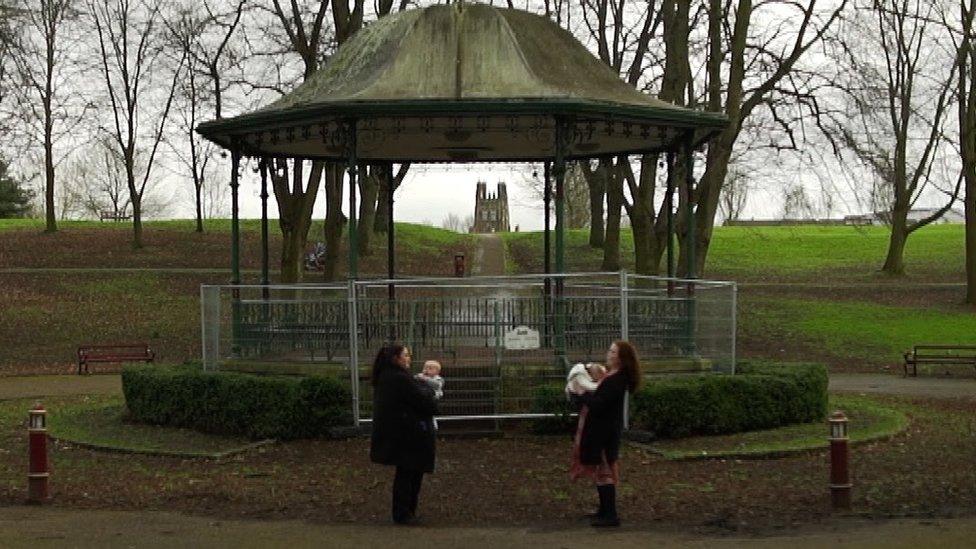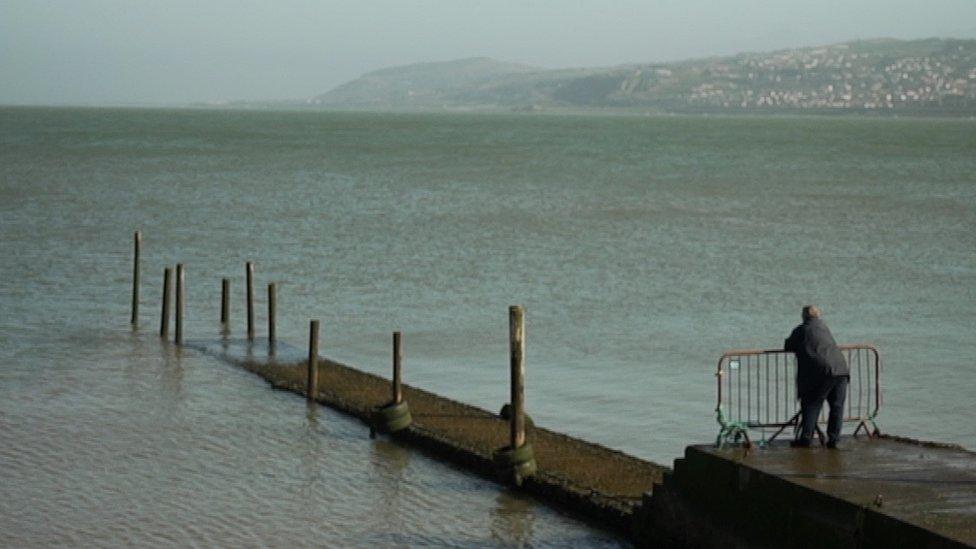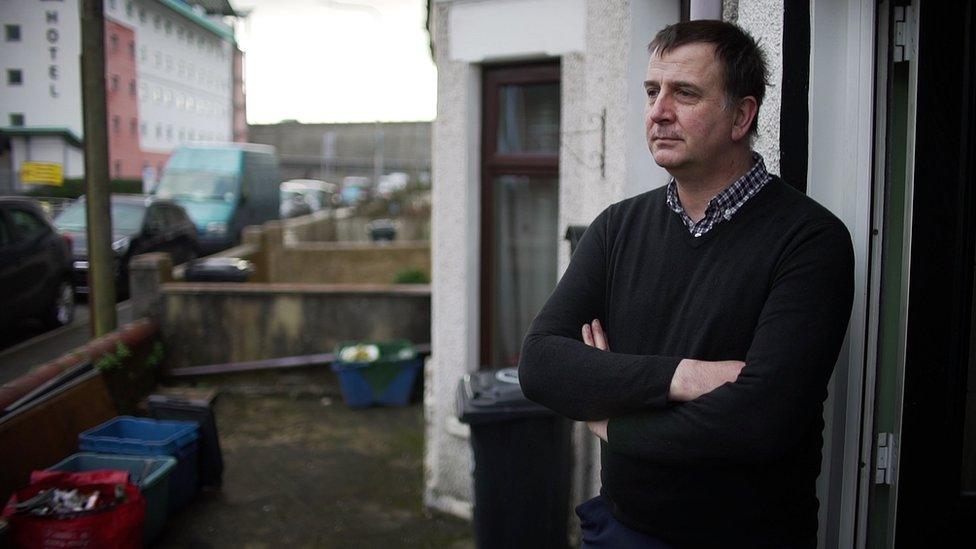Has the pandemic pushed Wales and England further apart?
- Published

Becca Butler and Carly Griffith discuss the speed of lockdown easing - and other issues
The UK's nations have handled Covid differently, prompting some deep thinking about how future relationships should work.
On a mid-March morning, by the bandstand in Bellevue Park, mums Carly Griffith and Becca Butler - babies in arms, standing at a Covid-safe distance - considered the past year.
They live in Wrexham, in north Wales, not far from the border with England.
From here, the different rules and restrictions applying in each country have become more apparent during the pandemic.
"We've been very aware that we're a border town," Carly said. "And there are slight differences. But I don't think it was as obvious as it is now.
"We're all doing our own thing now, which I don't think everybody was aware that we had the power to do."
The four nations of the United Kingdom have managed the pandemic slightly differently, providing an example of devolution in action.
For Becca, it is good thing that the Welsh government has moved at its own pace.
"I think they've handled it really well," she said. "The numbers in England compared to Wales are two completely different things, so if the numbers are better in Wales then, yes, things should be lifted a bit sooner."
"There have been good elements," Carly added. "We need to make our own decisions, but I feel like we should work in collaboration with each other."

Rhos-on-Sea has seen hospitality venues shut
On the north Wales coast, couples and families were enjoying the spring sunshine in the town of Rhos-on-Sea.
But, just off the promenade, the Peacock Lounge, a bar and restaurant, sat empty. Like all hospitality venues, it is unable to open.
Owner Phillip Ashe has been frustrated at the different restrictions in England and Wales, which he said had confused customers and affected his business.
"Cardiff is 185 miles away from us," he said. "We're 30 minutes from Chester. All the tourists from Chester were coming here thinking the rules were the same, when they're not."
Phillip said the pandemic had made him question the need for a Welsh Parliament.
"It's been party politics ever since day one," he added. "We should have had one person lead from the beginning.
"This devolved stuff just isn't working."
The debate around devolution stretches back decades, and it is far from settled.

Evan Powell favours a more independent future for Wales
For some, the pandemic has brought questions about who is best placed to make decisions on their behalf to the fore.
In the heart of the Rhymney Valley, 17-year-old Evan Powell believes the pandemic has shown the potential for Wales to make more of its own decisions, as an independent country.
"It has shown without Westminster interference we would be able to thrive," he said.
Evan will be able to vote for the first time in May, when 16 and 17-year-olds can have their say in elections to the Welsh Parliament.
"The younger generation, through social media or alternative news, have reached their own conclusions," he said, "and I think that has helped the support for independence rise massively."
While the idea of independence might have gained momentum, it is still a minority view.

Stuart Curtis wants the UK to stay united
In Newport, Stuart Curtis lives in the shadow of the M4 - a key route connecting Wales and England.
He believes there is already too much division between the nations of the UK.
"I'm happy for there to be a Welsh government to look out for the heritage parts of Wales," he said.
"I think that is a good thing. But it goes too far. We are part of the United Kingdom, and that's how it should be."
This virus has not been constrained by countries or limited by lines on a map, but for some it has been a reminder of the borders that exist in the UK as the different nations have moved at a different pace.
The question is whether or not that comes with any political consequence.